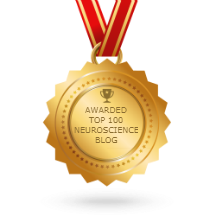By Morgen E. Peck
IEEE Spectrum Online, June 2008
Michigan engineers are developing a closed-loop deep-brain stimulation device for Parkinson’s disease that would listen to the brain while stimulating it.
 PHOTO: Dr. Helen Mayberg
PHOTO: Dr. Helen Mayberg
Read the rest of this entry…
Published in Research Headlines, Research Information Centre, European Commission
Autoimmune diseases establish themselves when antibodies designed to protect the human body against foreign invaders turn against their own cells and tissues. In multiple sclerosis (MS), antibodies begin to attack nerve cells which leads to a degeneration of the myelin fibres, the sheath that surrounds neurons. Very little is known about where these antibodies come from, but now scientists have identified a way to allocate antibodies to their source cells, thereby allowing a better tracking of these rogue molecules.

In multiple sclerosis healthy nerve cells are attacked by aggressive antibodies,© Shutterstock
Read the rest of this entry…
STILL using a mouse, keyboard, joystick or motion sensor to control the action in a video game? It may be time to try brain power instead.
By ANNE EISENBERG
Published: NY Times, June 8, 2008
 Jim Wilson/The New York Times
Jim Wilson/The New York Times
A new headset system picks up electrical activity from the brain, as well as from facial muscles and other spots, and translates it into on-screen commands. This lets players vanquish villains not with a click, but with a thought.
Put on the headset, made by Emotiv Systems in San Francisco, and when a giant boulder blocks the path in a game you are playing, you can levitate it — not by something as crude as a keystroke, but just by concentrating on raising it, said Tan Le, Emotiv’s president. The headset captures electrical signals when you concentrate; then the computer processes these signals and pairs a screen action with them, like lifting a stone or repairing a falling bridge.
Read the rest of this entry…
Treatment’s promise moves beyond movement disorders
By Tom Valeo
Posted in The DANA Foundation’s BRAINWORK
Vol. 18, No. 3 | May – June 2008
Electrically stimulating the hypothalamus of a morbidly obese man failed to curb his appetite, but jogged his memory instead, and that has pushed researchers to study whether the technique may hold promise for bolstering the failing memory of people with Alzheimer’s disease. The incident, reported in January, adds to the list of brain disorders in which deep brain stimulation, or DBS, is being used or tested.

(Image courtesy of WedMD. Copyright © 2002 WebMD. Inc. All rights reserved)
Read the rest of this entry…
 PHOTO: Dr. Helen Mayberg
PHOTO: Dr. Helen Mayberg 

 Jim Wilson/The New York Times
Jim Wilson/The New York Times
 Neurobot via RSS
Neurobot via RSS
